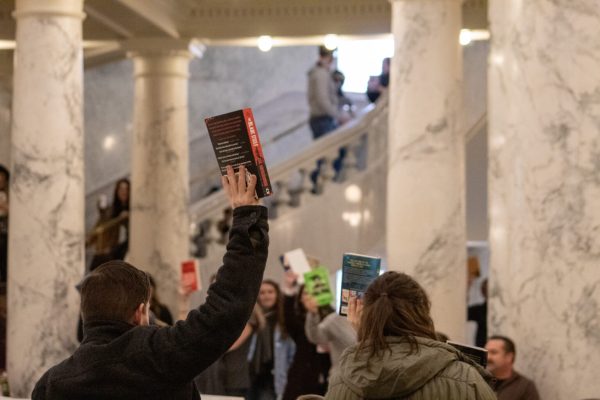Most Americans just received $1200 from the federal government. What now?
Millions of Americans awoke in mid-April to see a $1200+ deposit into their account from the federal government. This is a part of the $2 trillion CARES (Coronavirus Aid, Relief, and Economic Security Act) Act recently signed into law last month. This bill was passed in an effort to stimulate the economy following the growing recession caused by COVID-19 (Coronavirus Disease 2019).
The US has passed stimulus bills in past recessions, such as the $831 billion American Recovery and Reinvestment Act of 2009 or the Economic Stimulus Act of 2008, but this is the 3rd and largest stimulus ever passed in US history.
The CARES Act provides relief to seven main sources: individuals, small businesses, big corporations, hospitals and health care services, a federal safety net, state/local governments, and education.
Individuals, which make up the largest part of the bill accounting for roughly $560 billion, will have received cash payments. The payments use 2018 or 2019 tax forms to break down the amount each American should receive. Single adult filers and heads of households receive $1200 ($2400 for married couples), as well as an additional $500 for every claimed dependent under 17 years old. However, the amount starts to fade out for individuals who make a higher income. For every $100 an individual makes over a $75,000 income, the $1200 payment decreases by $5. This continues all the way until the salary of $99,000+, where an individual will receive no stimulus. These amounts double for married couples who file jointly. The bill also adds additional unemployment benefits, student loan employer benefits, and insurance coverage benefits.
Small businesses make up roughly $377 billion of the bill. Small businesses benefit from grants up to $10,000, loans, and increased loan forgiveness. Big business accounts for about $500 billion, which provides for loans and other funding. Corporations, however, also were placed under certain restrictions from the bill, such as a stock buyback ban if they received a loan, public disclosure of loan and other financial assistance, as well as restricting the president, vice president, members of the Cabinet and members of Congress from benefiting from money from corporations.
The rest of the bill budget is reserved for public health, food security programs, state/local governments, and education, which are all allocated roughly $153.5 billion, $26 billion, $339.8 billion, and $43.7 billion respectively. These costs go to funding public health services, public food security services, government programs to combat COVID-19, temporary student loan relief, and much more.
With the relief bill now settling into effect, many legislators are calling for even more action due to the lack of support the first stimulus actually provided to many individuals. Talk of a second stimulus package is being thrown into the works by several different legislators. Former Democratic presidential candidate Andrew Yang, who left the race in February, ran with his flagship policy of the “Freedom Dividend”, a form of Universal basic income. Even when Yang left the race, his policy left many citizens, including legislators, considering the potential impact of UBI. But now with the spread of Coronavirus, UBI, or at least a temporary one, is being taken into serious consideration.
Tim Ryan (D-OH) and Ro Khanna (D-CA) recently introduced the “Emergency Money for the People Act” that would provide a monthly baseline payment of $2000 plus $500 for each child up to three in total, for at least six months. The bill also states that if the employment rates don’t regrow back to what they once were before the virus, the payments could be renewed for another six months. Similar to the current stimulus, the payments lower by 5% for every $1000 an individual makes over the $130,000 income threshold of the proposed bill. Unlike the current bill however, regardless of how they filed their taxes college students and disabled dependants would receive the payments. In addition, the bill also calls for easier, and significantly faster methods to distribute the relief funds. Congress has yet to vote on this bill.

Born December 22, 2001
Snowboarder, pianist (kinda), aspiring mechanical engineer
Berserker Class







